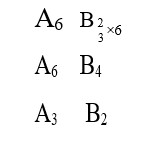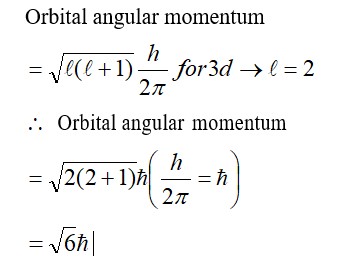The entropy change can be calculated by using the expression ∆S = . When water freezes in a glass beaker, choose the correct statement amongst the following:
(i) ∆S (system) decreases, but ∆S (surroundings) remains the same.
(ii) ∆S (system) increases, but ∆S (surroundings) decreases.
(iii) ∆S (system) decreases, but ∆S (surroundings) increases.
(iv) ∆S (system) decreases, and ∆S (surroundings) also decreases.
The entropy change can be calculated by using the expression ∆S = . When water freezes in a glass beaker, choose the correct statement amongst the following:
(i) ∆S (system) decreases, but ∆S (surroundings) remains the same.
(ii) ∆S (system) increases, but ∆S (surroundings) decreases.
(iii) ∆S (system) decreases, but ∆S (surroundings) increases.
(iv) ∆S (system) decreases, and ∆S (surroundings) also decreases.
This is a Multiple Choice Questions as classified in NCERT Exemplar
option (iii)? S (system) decreases, but? S (surroundings) increases.
Similar Questions for you
Kindly go through the solution
(1) [Ni (NH3)6]+2 → Ni+2 → d8, C. No. = 6,
SP3d2, Para
(2) [Co (H2O)6]+2 → Co+2 → d6, C. No. = 6
d2sp3, Dia
(3) [Ti (H2O)6]+3 → Ti+3 → d1, C. No. = 6
d2SP3, Para
(4) [Co (NH3)6]+3 → Co+3 → d5, C. No. = 6
d2sp3, Para
Taking an Exam? Selecting a College?
Get authentic answers from experts, students and alumni that you won't find anywhere else.
On Shiksha, get access to
Learn more about...

Chemistry NCERT Exemplar Solutions Class 11th Chapter Six 2025
View Exam DetailsMost viewed information
SummaryDidn't find the answer you were looking for?
Search from Shiksha's 1 lakh+ Topics
Ask Current Students, Alumni & our Experts
Have a question related to your career & education?
See what others like you are asking & answering



